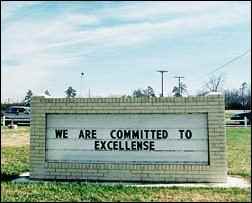“Two Decembers ago I was sitting on the porch enjoying the smell of wood smoke rising from our little outdoor cooking grill, and I made a New Year’s Resolution: to keep some of the money that seemed to run through my fingers, and to make as much at home as I would if I had a part-time job.”
I wrote those words seven years ago. Since then my humble idea has grown, and I am able to make money to stay at home. I set my own hours and as I write I can look out my window at my mustard plants sprouting, promising a dark green, leafy winter.
Writing about my home business for Homestead.org (Butter n’ Eggs – Without the Manure!) was one offshoot of the original plan. My home-centered money-making endeavors spring from twin founts: my wish to tend my garden, and my life-long love affair with clear, expository prose.
I started reading when I was four, quite enthralled by the saga of Tony and his enviable status as the owner of a pony. When I was 12, I had to compose a two-page autobiography. How much can a 12-year old say about her rather ordinary life? So I began by pointing out that I shared a birthday with Abraham Lincoln, and that we had something else almost in common: he did his homework by firelight, and I did mine by the soft glow of the television set. To my surprise, this line, when read aloud to my classmates, got a huge laugh. I could see my future unfolding as the witty writer with a mighty pen behind which to hide my painful shyness.
But though I was hopeful, I never took my writing skills seriously. Once I grew up, The Boss owned my labor and the fruits thereof and that was How It Was. Until December, 2001, when I was righteously sick of working fulltime and had a lot of good reasons to want to avoid the nine-to-five, forty-hour-a-week grind: a new marriage, a little homestead in Piedmont, North Carolina, a few dogs, some fruit trees, and a small cabin where I kept my computer—my hideaway, my desert isle. It was during that period that I started my Butter’n’Eggs Specialty Services, aka BESS. It happened just as I described in that first article for Homestead.org: I bought books at thrift shops and sold them on Amazon.com. Even a small profit is a profit, and I seemed to have a good instinct for what sells, which, combined with my natural nose for cast-offs (see also my Homestead.org article “Will’s Good Store”) allowed me to turn a bargain-hunting hobby into a modest home business.
Not long afterward, I learned that I could get new books for free in exchange for my willingness to write book reviews. This allowed me to sell new books for more money than used ones, and occasionally even involved a fee for the review. BESS was rolling. The Butter n’ Eggs article was a success at Homestead.org. Readers ordered my pamphlet on book-selling techniques. Then a friend pointed out that as long as I was writing, I should write a book, so I did, and this same friend got me a temporary gig as a freelance editor for a small publishing company which then published my book. Other books followed. My latest non-fiction book will be released this December, on BESS’s tenth anniversary.
I developed a website called A Woman’s Write, a yearly book competition that has built up an excellent reputation with winners going on to publication. As its chief editor, I read and critique most of the entries. This, plus my reviews and independent editing jobs, means that I not only read but edit, critique, and meditate on up to 200 new books a year.
In other words, I see a lot of others’ words. I still have a part-time day job and have even worked full-time off and on. But “my” books, “my” writers, comprise a secret life that is more emotionally satisfying than my day job, and usually more economically rewarding. For me, editing and reviewing is a kind of “sweat lodge” experience, in which I put on the skin of the writer, and live inside his or her book.
So someone asked me recently, what are you looking for in the work that people you send you for editing or review? Is there a magic formula for successful writing? Well, I believe there is a formula, though not magic, for writing and for work in general.
But before we hand out the mystic goodies, let’s get down to basics.
Can you write? If you’re reading, you may assume you can. Not so fast! Writing is a skill, with rules and the need for practice. Editors, publishers, website hosts, contest judges, agents—anyone who is going to look at your work with an eye to paying you for it—has the right to criticize it, or simply toss it in the legendary Round File.

Here are some of the most elementary (I am often tempted to call them stupidest) mistakes you can make in simple grammar, mistakes that could well make your submission disappear forever:
1. The ubiquitous apostrophe. The poor apostrophe has been called on to do all sorts of work it was never meant to do. Its only jobs are to denote possession or fill in the missing letter in common contractions, like “don’t.” Apostrophes should never be used for simple plurals (“tomato’s for sale” is wrong). Repeat after me: I-T-apostrophe-S always means “it is” or “it has.” This sentence is correct: It’s lost its meaning.
2. The wandering comma, and the comma splice. A marvelous bookmaking good humor out of bad grammar is Lynn Truss’s Eats, Shoots, and Leaves. The title is illustrated by a perfectly innocent panda. Without the commas, the panda is minding its own business, but with them, it has become a cold-hearted killer. Too many commas, like too few, constitute a major hair-puller for editors like me. The current convention for lists of three or more objects requires commas until the word “and” at the last. Example: To write well, you need a sharp mind, a working computer, a bold approach, and something to say. The comma splice is a well-named attempt to join two separate sentences with the over-worked comma (often nowadays this includes the misuse of the word “then” as a conjunction, which it is not). Example: He read the paper, then he drank his coffee. No. He read the paper. Then he drank his coffee.
3. The over-wrought semi-colon. Kurt Vonnegut said that all a semi-colon does is show you went to college. Ouch! To avoid pretension and the temptation to prove that you have been blessed with the understanding of how to use the semi-colon, stick to short, expository sentences.
4. Abused quotation marks. Quotations in American writing are always surrounded by double quotation marks that always sit outside the words quoted. Single quotation marks are not “special”—they are only used to quote words that are already inside double quotation marks. Please do not use single quotation marks by themselves. Italics are made for special occasions and should be used for most titles, rather than quotation marks. By the way, “quote” is a verb; “quotation” is a noun.
5. Death by exclamation point. In my opinion, exclamation points belong only in advertisements and comic books. If you bite the bullet and leave them out, even in an action story or novel, after a while you will begin to experience a soothing sense of your competence as a writer. This same advice goes for italics and any capital letters. I tell my clients, “Let your good writing tell us where the emphasis lies.” So: no bold, no caps, and as few italics and exclamation points as you can stand.
Be advised: grammar is a mighty tree and exploring its many roots and branches is a long-term effort. But now you know a bit about it, perhaps enough to keep out of trouble.

What next?
Barbara’s Formula for Freelance Writing Success:
Step 1: Make It Real to Yourself: Put your plans on paper. Plunge ahead with that idea, but map it out first. I call it percolation. As you think it through and make notes, it will begin to seep into your consciousness and live there. If you can’t write out a one-page summary of your plan, or a two-page plot synopsis of your book, your idea is probably not ready for prime time.
Step 2: Make It Real to Others: Investigate potential markets. This is the same task that is required for any potential profession. If what you plan to do won’t pay off eventually, why bother? See what’s already out there. Don’t turn back if someone has stolen your idea. Amplify some aspect of the same idea and piggy-back on their work. Approach Step 2 with the same zeal you put into Step 1. Most publishers expect you to have a marketing plan and the will to push your work aggressively, just employers expect you to compose your resumé based on their job description, not on your idea of what they should pay you for.
Step 3. Make It Real to the World: Sell it, give it away, but distribute, distribute, distribute. The day you start seeing your name pop up on a Google search, or in the newspaper on the op-ed or book review page, you’ll know your star is rising. This may require that, initially, you work for nothing, or very little. In Butter n’ Eggs, I advise, “Don’t despise a dollar.” So, you wanted a thousand bucks and instead, you’re being offered $100 to get your work to see the light of day. Is that what it takes? Then go for it. In my part-time position as a Career Facilitator, I always suggest that people volunteer; it’s the foot in the door. Volunteering to write, hanging around a place where writing happens, or writing for very low pay, all are fine strategies for the beginner.
Now, some suggestions for implementing these steps in developing your freelance writing business:

Suggestion One: Solicit a book about cats (for example), from a publisher (send them at least one sample review even if it’s never been published). Offer a positive review to a cat-centered website, blog, or magazine. Read the book, taking care not to spill spaghetti in the margins. Write the review. Sell the book (as new) on Amazon.com. Monetary profit: $10. Your name on the internet: Priceless.
Suggestion Two: Try your hand at “article writing” for the internet. It’s a skill in itself, using keywords to attract hits, and the pay is low. But it’s great practice in composing short, meaningful sentences. There’s a wide variety of writing ops out there. I once got $100 worth of Starbucks gift cards for writing little blurbs about businesses in my home town. I thought of that as “pay” and patted myself on the back for months, every time I sucked down a latte.
Suggestion Three: Take that story you just wrote, the one you cherish because it’s all about you when you were in high school and this cool stuff that happened one night, and reduce the word count by 30%. Of all the exercises we can do for our writing, word loss offers the most gain for the least pain.
Suggestion Four: Seek out writing contest websites and try to write something for at least one contest a month. Pay special attention to those that have the most stringent requirements, like submitting a story of only 500 words (called “flash fiction”). These will really get the brain cells sweating. And the more often you enter the more likely you are to win. Some contests (“Like mine,” she stated modestly) offer a free critique to entrants. This gives you an objective opinion about your efforts.

Suggestion Five: Join a writers group on the internet or even in your home town. This can have pitfalls: other writers may be jealous and insecure and criticize your work too harshly, or they may not slam your work for fear you’ll slam theirs. But for many people, knowing that there are folks out there who are fighting the same battles can be an encouragement. And through networking with others, you’ll get valuable leads.
There are some excellent websites out there for the freelance writer: Upwork.com, FreelanceWriting.com (this site also has writing contest listings), and, yes, Craigslist.(I approach the latter with care, but I have gotten writing jobs from Craigslist). For contests, try WritersDigest.com (I’ve won two awards from WD, both quite unexpected because they have thousands of entrants, and if I can do it, so can you) and the intriguing “3-Day Novel Contest” conducted yearly over Labor Day weekend.
With BESS on the front burner of my work life and a lot of good experience that I can justifiably brag about, I am always willing to share what I know with other people. I do it almost every day, by editing, by writing thorough, thoughtful critiques, and by generating book reviews with a positive slant whenever possible for beginning and well-practiced writers. In the internet age, the markets have expanded to allow more people to pursue creative dreams. I think anyone can do what I’ve done, and I highly recommend it.
Start today. Get your home business off the ground, and get out of the grind.










